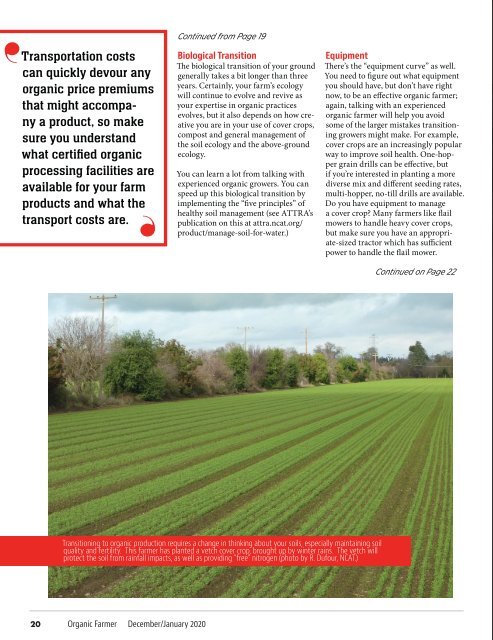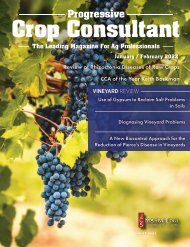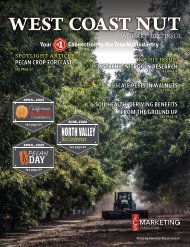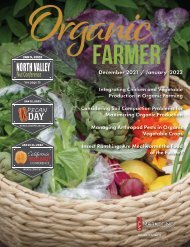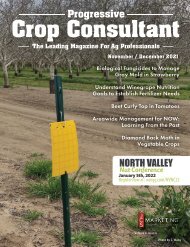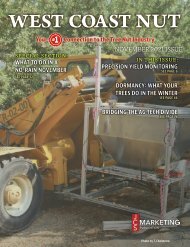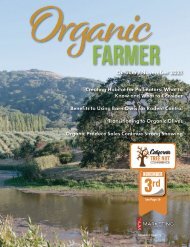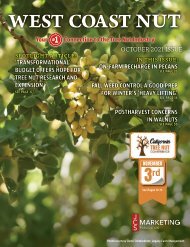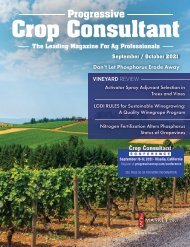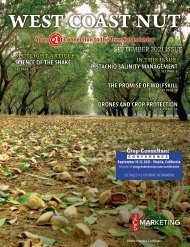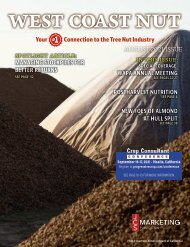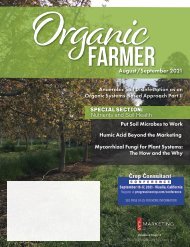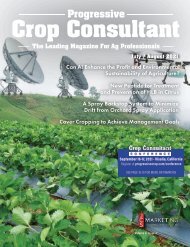OF Dec Jan 2020
You also want an ePaper? Increase the reach of your titles
YUMPU automatically turns print PDFs into web optimized ePapers that Google loves.
'<br />
Transportation costs<br />
can quickly devour any<br />
organic price premiums<br />
that might accompany<br />
a product, so make<br />
sure you understand<br />
what certified organic<br />
processing facilities are<br />
available for your farm<br />
products and what the<br />
transport costs are.<br />
'<br />
Continued from Page 19<br />
Biological Transition<br />
The biological transition of your ground<br />
generally takes a bit longer than three<br />
years. Certainly, your farm’s ecology<br />
will continue to evolve and revive as<br />
your expertise in organic practices<br />
evolves, but it also depends on how creative<br />
you are in your use of cover crops,<br />
compost and general management of<br />
the soil ecology and the above-ground<br />
ecology.<br />
You can learn a lot from talking with<br />
experienced organic growers. You can<br />
speed up this biological transition by<br />
implementing the “five principles” of<br />
healthy soil management (see ATTRA’s<br />
publication on this at attra.ncat.org/<br />
product/manage-soil-for-water.)<br />
Equipment<br />
There’s the “equipment curve” as well.<br />
You need to figure out what equipment<br />
you should have, but don’t have right<br />
now, to be an effective organic farmer;<br />
again, talking with an experienced<br />
organic farmer will help you avoid<br />
some of the larger mistakes transitioning<br />
growers might make. For example,<br />
cover crops are an increasingly popular<br />
way to improve soil health. One-hopper<br />
grain drills can be effective, but<br />
if you’re interested in planting a more<br />
diverse mix and different seeding rates,<br />
multi-hopper, no-till drills are available.<br />
Do you have equipment to manage<br />
a cover crop? Many farmers like flail<br />
mowers to handle heavy cover crops,<br />
but make sure you have an appropriate-sized<br />
tractor which has sufficient<br />
power to handle the flail mower.<br />
Continued on Page 22<br />
Transitioning to organic production requires a change in thinking about your soils, especially maintaining soil<br />
quality and fertility. This farmer has planted a vetch cover crop, brought up by winter rains. The vetch will<br />
protect the soil from rainfall impacts, as well as providing "free" nitrogen (photo by R. Dufour, NCAT.)<br />
20 Organic Farmer <strong>Dec</strong>ember/<strong>Jan</strong>uary <strong>2020</strong>


